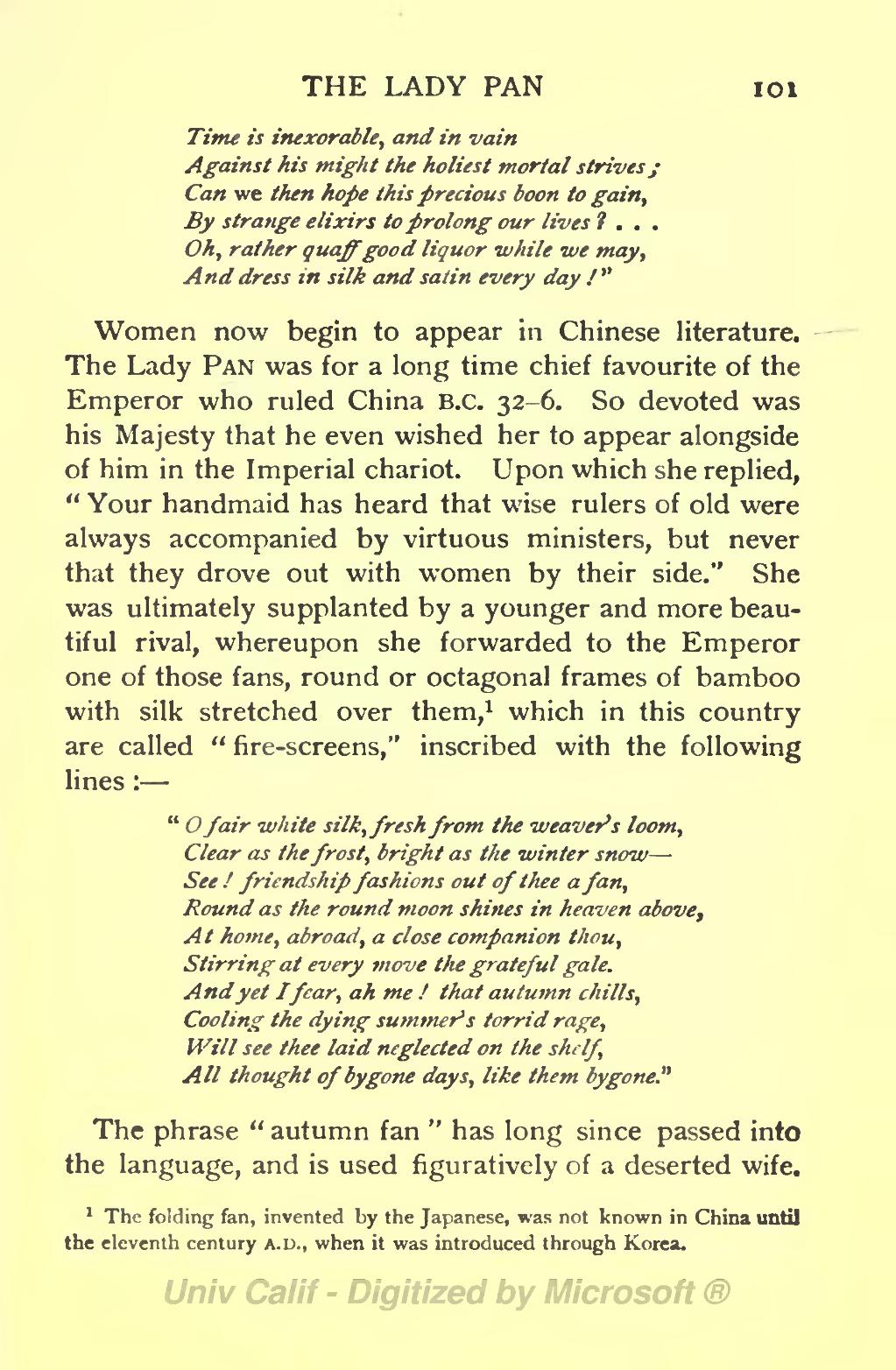Time is inexorable, and in vain Against his might the holiest mortal strives j Can we then hope this precious boon to gain. By strange elixirs to prolong our lives ? . . . Oh, rather quaff good liquor -while we may, And dress in silk and satin every day /"
Women now begin to appear in Chinese literature. The Lady PAN was for a long time chief favourite of the Emperor who ruled China B.C. 32-6. So devoted was his Majesty that he even wished her to appear alongside of him in the Imperial chariot. Upon which she replied, " Your handmaid has heard that wise rulers of old were always accompanied by virtuous ministers, but never that they drove out with women by their side." She was ultimately supplanted by a younger and more beau- tiful rival, whereupon she forwarded to the Emperor one of those fans, round or octagonal frames of bamboo with silk stretched over them, 1 which in this country are called " fire-screens," inscribed with the following lines :
" O fair white silk, fresh from the weaver's loom, Clear as the frost, bright as the winter snow See ! friendship fashions out of thee a fan, Round as the round moon shines in heaven above, At home, abroad, a close companion thou, Stirring at every move the grateful gale. And yet I fear, ah me ! that autumn chills, Cooling the dying summer's torrid rage, Will see thee laid neglected on the shelf, All thought of bygone days, like them bygone?
The phrase " autumn fan " has long since passed into the language, and is used figuratively of a deserted wife.
1 The folding fan, invented by the Japanese, was not known in China until the eleventh century A.D., when it was introduced through Korea.
�� �
